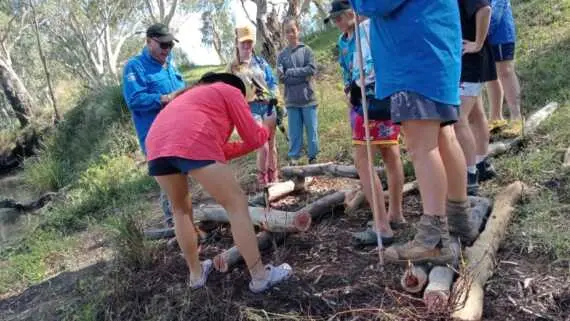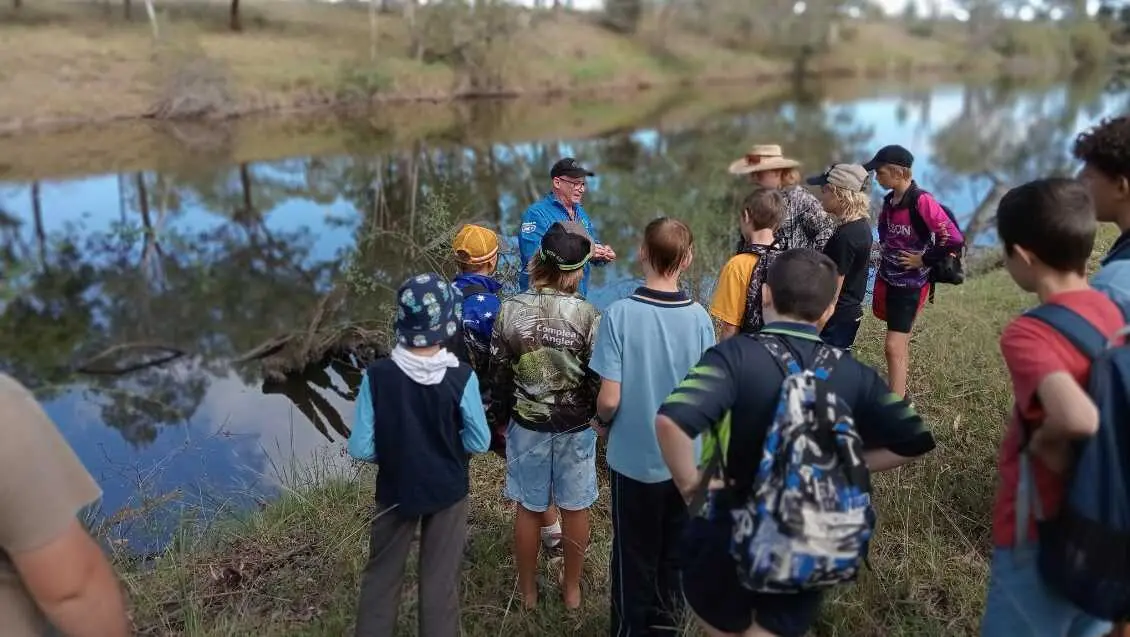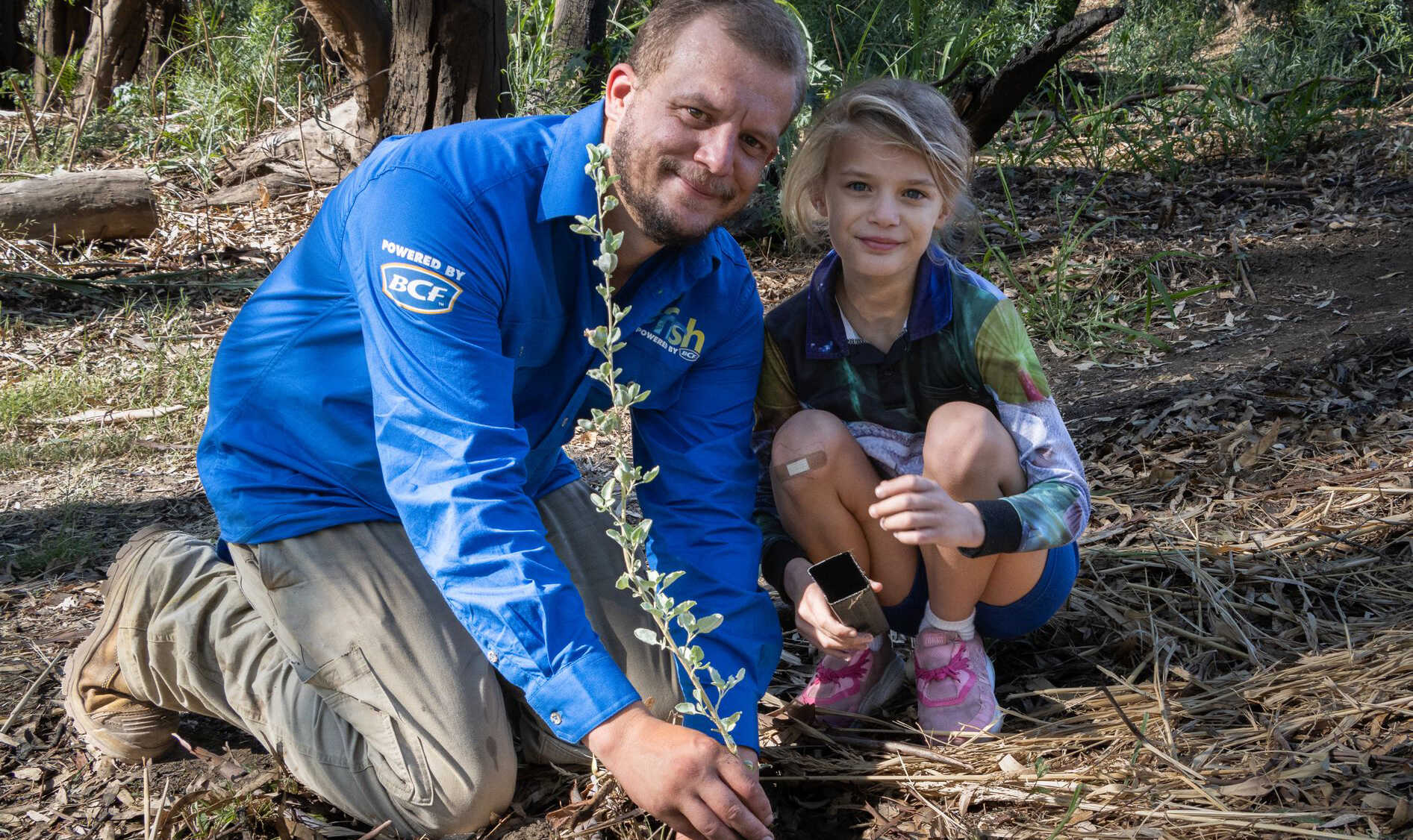This unique project will see young people restoring river health and habitat for wildlife. They’ll be planting trees along waterways. Making fish hotels for threatened fish species. Restoring wetlands. Collecting rubbish and designing and implementing a litter prevention project for their local rivers.
How conservation gives back to youth and environment
Through the Regional Youth Investment Program, OzFish provides a valuable opportunity for young people in regional towns and Landcare NSW volunteers to participate in river restoration efforts. Participants from Moree, Tenterfield, Dubbo, and Gol Gol can contribute to their rivers’ health by engaging in this fun, inclusive, and practical program.

The program achieves this while helping them develop essential skills and knowledge. This enhances their prospects for future employment in the conservation sector. By bridging the gap between environmental stewardship and youth development, the Regional Youth Investment Program creates an enriching experience. It empowers young individuals to positively impact their local rivers. This happens while unlocking their potential for a promising career in the conservation field.
Communities that drive positive change
OzFish and Landcare NSW are generating momentum in the growth of empowered communities, the development of leaders within these groups, and their capacity to deliver on-ground conservation efforts.
We aim to benefit all our volunteers while achieving our over-arching objective to improve the health of NSW waterways.

This hands-on project will provide experiential learning and work-readiness skills while empowering young people to make positive changes to their local environment and give them a sense of belonging to the community.

How the activities help waterways
OzFish’s experienced staff will soon install specific fish hotels within wetlands and billabongs surrounding Moree for small-bodied native fish species.
River de-snagging was a popular activity to increase boating safety and reduce flooding. Today, removing wood from waterways is listed as a Threatening Process under the Fisheries Management Act. Unfortunately, before this legislation, river de-snagging had already led to significant declines throughout the Murray Darling Basin. Fish hotels are innovatively designed wooden construction that looks like a hashtag (#). They consist of crisscrossed wooden beams placed to create a complex system of habitat that sits on the riverbed. Made from natural materials, they are environmentally friendly. More importantly, they’re a perfect location for native fish to inhabit.










